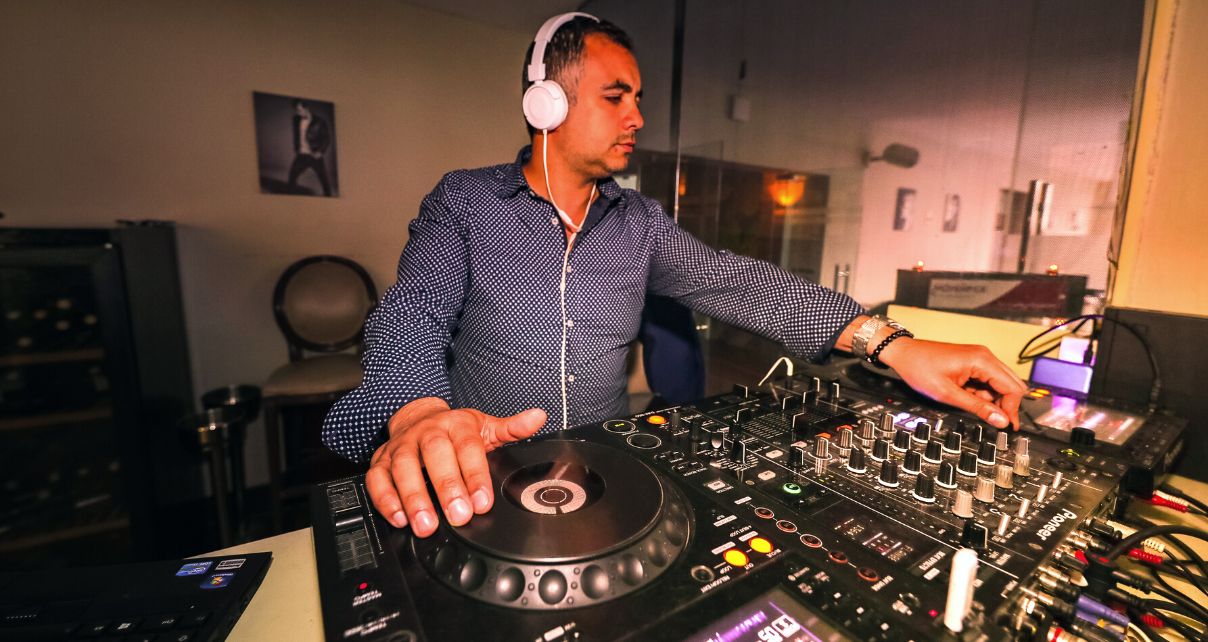Love DJing, but also work a high-pressure job? You’re not alone, as many DJs in our community are dealing with the same issue. Watch the lesson replay for advice on balancing your DJ life with a full-time job.
About this lesson
This is a recording of one of our free Thursday Q&A Live DJ lessons – “the show where DJs get answers to things they didn’t know they didn’t know”.
In this lesson, we also discussed where to find older music, protecting your DJ gear, the big difference between static and motorised platters, and much more – timings below. To learn more about how our DJ courses can help you become a better DJ or DJ/producer, check out our courses page.
DJ questions answered this week:
- 0:00 Intro
- 1:30 How to balance DJing with a full-time job?
- 20:35 What’s the best way to protect DJ gear in full sun?
- 21:59 Are smoke machines hazardous near a DJ set-up?
- 22:21 Which DJ pools have 70s and 80s music?
- 27:20 How much social media promo should I do before a DJ gig?
- 32:50 Should I quit my day job to pursue DJing?
- 36:41 How do you protect your DJ laptop at clubs?
- 37:59 How do you record a mic separately on a DJ livestream?
- 40:51 Is there a timing difference between static and motorised platters?
So how do DJs balance full-time work and DJing?
I remember when I was younger, a boss marched me into his office and gave me an ultimatum: Either my DJing or my job. I’d been a few minutes late to work yet again, and DJing was becoming more and more important in my life. I was in my early 20s and I told him I was going to go for the DJing. In my life, the rest is history, but of course most of you reading this are not in your 20s, and while DJing is a great hobby for you, you also have responsibilities – unlike me at that time.
Family, mortgage and so on all require an income, and a full-time job is the way the vast majority of us get that income. But what of our DJing passion? I think the first thing to do is to understand that it is a passion and it needn’t be a full-time job in order for it to be something that you deserve to do. Having it as a passion that pays for itself is a great aim and far more realistic than having it compete with your full-time job.
Read this next: How To Find Time To Learn DJing (Proven Method For Busy People)
So for instance, you could set up as a mobile event or wedding DJ, not really own an awful lot of equipment (because that’s easy to hire) and do half a dozen gigs a year. You’ll get a lot of fun and satisfaction from those, and in the meantime you can be practising whenever life allows (and of course building a collection), getting to know your existing music, finding new music, building playlists, practising your mixing and so on. These are all things that you can do as much or as little as you want without putting extra pressure on yourself.

In our community of students, most students are (at best) part-time DJs because they have full-time jobs, and an awful lot of people are simply hobby DJs. I always say – once a DJ always a DJ – It never leaves you whatever else life throws at you, and that’s fine! Doing it because it’s something that brings you great pleasure and relaxation (and maybe if you’re lucky, pays for itself) can be enough.
Anyway, in this live show we talk through practical ways of fitting together a full-time job with DJing, and we talk to many of our students and subscribers who are at different stages of their lives and their DJing careers, and who share their triumphs and mistakes. So do enjoy watching it and remember to come back with questions and comments afterwards. Thanks!
Learn to DJ like a pro: The Complete DJ Course






